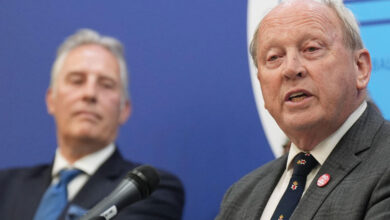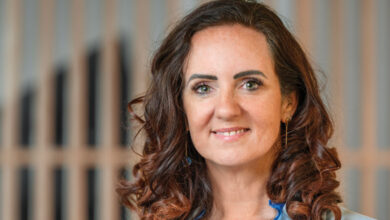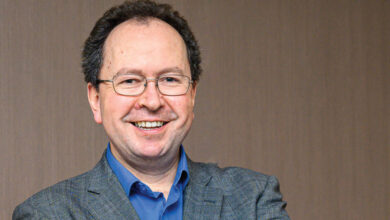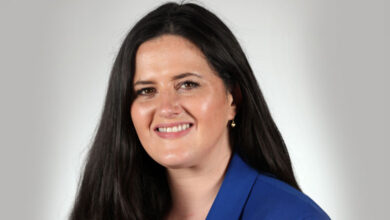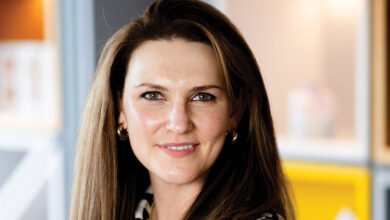Irish Constitutional Convention & Northern Ireland
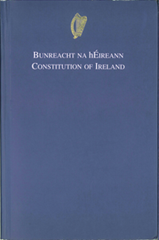 A forthcoming Constitutional Convention in the Republic will consider granting voting rights in presidential elections to Irish citizens in Northern Ireland. Stephen Dineen reviews its plans.
A forthcoming Constitutional Convention in the Republic will consider granting voting rights in presidential elections to Irish citizens in Northern Ireland. Stephen Dineen reviews its plans.
The South’s convention on the Irish Constitution is due to begin soon, with at least eight topics to be considered by a 100-member body, which will include members from four of the Assembly’s political parties.
Of greatest interest to Northern Ireland will be the convention’s deliberations on extending the franchise for Irish presidential elections to Irish citizens in the North and abroad.
The convention has been established on foot of a commitment in the Fine Gael- Labour administration’s Programme for Government. Sixty-six members will be randomly chosen from the electoral register, with 33 elected representatives and a high profile chairperson constituting the remainder.
All parties represented in the Assembly were invited to send one representative. Sinn Féin, the SDLP, Alliance and the Green Party have accepted the invitation. A spokeswoman for Alliance said that the party is participating because some topics such as the franchise for Irish presidential elections are of relevance to Northern Ireland. MP Mark Durkan will represent the SDLP, Stewart Dickson will attend for Alliance and Steven Agnew will participate for the Green Party.
In a sign of Sinn Féin’s seriousness towards the initiative, party President Gerry Adams and Vice-President Mary Lou McDonald will represent it from the South. Deputy First Minister Martin McGuinness will represent its Assembly team.
Nationalists would welcome the change for presidential elections but unionists would view it as undermining the union. The SDLP has also suggested a further extension, to British citizens in Northern Ireland.
An all-island presidential poll would be the first contest at that level since the 1920 local elections. The next presidential election is expected to co-incide with the centenary of the 1918 general election.
It is likely that any change would have to be agreed with the UK Government, in keeping with the governments’ joint approach throughout the peace process.
The convention is being organised by the Department of the Taoiseach. Speaking to agendaNi, its Minister of State Paul Kehoe defended the topic’s inclusion. He believes that “people are willing to move on” and that to advance the peace process “even a step further, well then we have to be throwing different ideas out there as well.”
Delegates will meet monthly to debate a topic (see text box), with submissions from outside groups and expert evidence available to members. At the end of deliberations, members will vote on a proposal (i.e. whether the Republic should have a referendum on a particular issue). A simple majority would suffice for making a formal recommendation to government.
The Government has committed to responding to recommendations within four months of a report on a topic. The body has been given a year to complete its work but the Government has indicated that it will review the timeframe. Other constitutional amendments can be considered once the initial topics are debated.
A spokesman for the constitution told agendaNi that a chair will be appointed shortly, with a launch date confirmed shortly afterwards. The first plenary session will be held within a month of the official launch.
The topics likely to be most contentious are same-sex marriage and change of voting system for Dáil elections. Samesex marriage has become a divisive issue between the Christian democratic and social democratic coalition partners. Taoiseach Enda Kenny has declined to state his position but stated his opposition to it in 2007. Tánaiste and Labour leader Eamon Gilmore has said that same-sex marriage is “the civil rights issue of this generation”.
The Dáil’s current single transferable vote system has become the subject of debate in recent years with opponents calling for a system providing more ‘nationalminded’ politicians and less politically competitive constituencies. Supporters point to its proportional outcomes and representation for smaller parties and independent TDs again.
Referendums resulting in no change took place in 1959 and 1968.
A lesser known constitutional article under scrutiny is Article 41.2.1: “In particular, the State recognises that by her life within the home, woman gives to the State a support without which the common good cannot be achieved.”
The topic has been scrutinised by a constitutional review group and two Oireachtas committees on the constitution. All three reports (1996, 1997 and 2006) recommended a more gender-neutral wording that recognises home and family life.
In a Dáil debate on the convention’s establishment, Enda Kenny told TDs that the convention “represents an innovative approach to examining constitutional reform, one that has never been tried before in this country.” Eamon Gilmore said that TDs needed to reflect on the fact that never before had Parliament “exercised such a vote of confidence and trust in citizens”.
Fianna Fáil supports a constitutional convention but its leader Micheál Martin described the convention’s agenda as unable to deliver any real political reform. He said: “At this moment of continued economic crisis and with lost public faith in the role of politics, proposing to give priority to discussing the President’s term of office and the voting age is worse than ridiculous.”
Sinn Féin proposed an extension of the convention’s membership to include the disadvantaged and northern citizens. It also wanted the convention to consider extending referendum voting rights to Northern Ireland citizens and Irish citizens overseas and to be given a longer timeframe for deliberation “to allow for a comprehensive referendum to take place in 2016”.
Gerry Adams described the Government’s approach as “minimalist, disjointed and piecemeal”. Defending the Irish Government against claims that the agenda lacks ambition, Kehoe told agendaNi: “The argument of reducing the voting age and the duration of the president’s [term] had been out there for quite some time, and I believe they are very topical issues.”
Ireland’s constitutional experiment is not without precedent. British Columbia established a citizens’ assembly of 160 randomly selected citizens in 2004. It met regularly to consider changing the electoral system from the first-past-thepost voting system to PR-STV but the proposal did not reach the required majority (60 per cent and simple majorities in 60 per cent of electoral districts) in a subsequent referendum.
A 103-member people’s assembly in Ontario considered electoral reform in 2006 and 2007, but a proposal for a mixed member proportional system was subsequently rejected by citizens. The Netherlands held a (purely advisory) citizens’ assembly in 2006 and its recommendations for electoral change were never adopted by government.
Convention agenda
- Reducing presidential term from seven years to five
- Reducing voting age from 18 to 17
- Reviewing the Dáil electoral system
- Giving Irish citizens outside the Republic the right to vote in presidential elections
- Providing for same-sex marriage
- Amending Article 41 to encourage greater female participation in public life
- Increasing the participation of women in politics
- Removing of the offence of blasphemy from the Constitution

